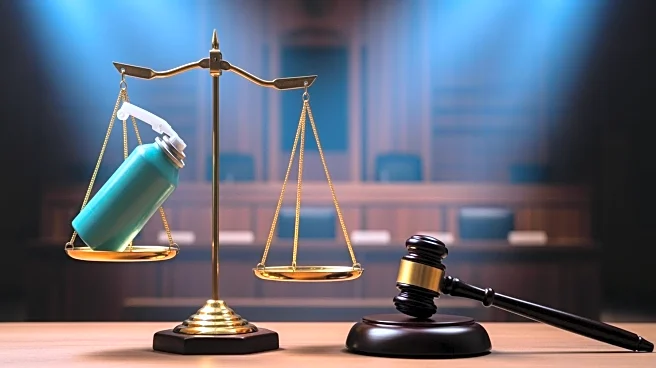What's Happening?
A federal judge in Chicago, U.S. District Judge Sara Ellis, has raised concerns over the tactics used by federal immigration enforcement officials, specifically regarding the deployment of tear gas during
recent protests. The judge called in top officials from U.S. Immigration and Customs Enforcement (ICE) and Customs and Border Protection (CBP) to address potential violations of a court order that temporarily bans the use of riot-control weapons against journalists and peaceful protesters. During the hearing, ICE Deputy Field Office Director Shawn Byers and CBP Deputy Incident Command Kevin Harvick were questioned for four hours. Byers admitted to not reviewing any reports on the use of chemical weapons by ICE agents, which surprised Judge Ellis. The hearing follows a temporary restraining order issued by Ellis, stemming from a lawsuit filed by Block Club Chicago and other organizations against the federal government for excessive force.
Why It's Important?
The scrutiny of ICE and CBP's actions highlights ongoing tensions between federal agencies and local communities, particularly concerning the enforcement of immigration laws and the treatment of protesters. The use of tear gas and other riot-control measures has been a contentious issue, raising questions about civil rights and the appropriate use of force. This case underscores the broader national debate on immigration enforcement and the balance between maintaining order and respecting individual rights. The outcome of this legal scrutiny could influence future policies and practices of federal agencies, potentially leading to changes in how protests and immigration enforcement are handled across the U.S.
What's Next?
The legal proceedings are likely to continue as Judge Ellis and other stakeholders seek to ensure compliance with the court's orders. The federal agencies involved may face increased oversight and pressure to justify their actions and align with legal standards. Community groups and civil rights organizations are expected to remain vigilant, potentially leading to further legal challenges or policy proposals aimed at reforming immigration enforcement practices. The situation may also prompt discussions at the federal level regarding the use of force and the protection of civil liberties during protests.









